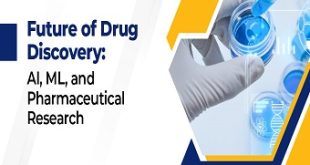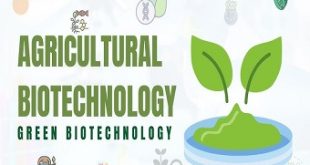Evolution is an imperative organic system that explains the variety of existence on Earth. It encompasses the gradual adjustments in the heritable qualities of populations over generations. The idea of evolution, mainly articulated by Charles Darwin in the nineteenth century, has converted our perception of biology, influencing several fields such as genetics, ecology, and even social sciences. This complete exploration will delve into the records of evolution, its great effects on society and science, and its practicable future directions.
1. The Origins of Evolutionary Theory
1.1 Early Concepts of Change
The notion that species exchange over time is no longer new. Philosophers like Aristotle and early naturalists meditated on the thinking of species changing, however, they lacked the proof to guide these notions. The 18th century naturalists like Georges-Louis Leclerc, and Comte de Buffon, advocated thoughts about species version and the opportunity of adaptation to environments.
1.2 Darwin and Natural Selection
The most huge development in evolutionary concept got here with Charles Darwin. In 1859, he posted “On the Origin of Species,” the place he delivered the thinking of herbal selection. Darwin argued that people with superb features are extra in all likelihood to live on and reproduce, passing these qualities to future generations. This mechanism explains how species adapt to their environments over time.
1.3 Mendelian Genetics
In the early twentieth century, Gregor Mendel’s work on inheritance supplied the lacking piece to Darwin’s theory. Mendel’s ideas of genetic inheritance confirmed how qualities are handed down, thereby giving a genetic groundwork to evolution. The synthesis of Darwin’s herbal decision and Mendelian genetics shaped what is recognized as the Modern Synthesis of evolutionary biology.
2. The Impact of Evolutionary Theory
2.1 Advancements in Biology
The acceptance of evolution has profoundly influenced biology:
Biodiversity Understanding: Evolutionary idea explains the full-size variety of lifestyles on Earth, assisting in classification and the find out about organisms’ relationships.
Conservation Biology: Understanding evolution helps in conservation efforts. By recognizing the genetic variety inside species, conservationists can increase techniques to retain endangered species and keep ecosystem balance.
2.2 Medicine and Health
Evolution has tremendous implications for medicine:
Antibiotic Resistance: The evolutionary fingers race between microorganisms and antibiotics illustrates herbal selection. Bacteria evolve rapidly, mainly due to antibiotic resistance—an urgent world fitness challenge.
Vaccination Development: Understanding how viruses mutate and evolve informs vaccine development, as considered in the ongoing conflict between influenza and COVID-19.
2.3 Social Sciences and Human Behavior
The implications of evolution lengthen into social sciences:
Psychology and Behavior: Evolutionary psychology posits that many human behaviors, such as mating techniques and social dynamics, can be understood through the lens of evolutionary theory.
Cultural Evolution: Cultural practices and norms additionally evolve. Understanding this can supply insights into human societies, revealing how cultural features are exceeded and modified over generations.
3. Evolutionary Impacts on Society
3.1 Ethical Considerations
The acceptance of evolution has stirred moral debates: Eugenics Movement: In the early twentieth century, misinterpretations of evolutionary concepts contributed to the eugenics movement, which sought to enhance the human populace via selective breeding. This led to moral violations and human rights abuses.
Creationism vs. Evolution: The debate between creationism and evolution has influenced academic insurance policies and science curricula, elevating questions about the separation of science and religion.
3.2 Economic Implications
Evolutionary ideas can additionally be utilized in economics:
Market Dynamics: Concepts such as opposition and adaptation inform commercial enterprise strategies. Companies that adapt to altering market stipulations are extra possibly to survive.
Innovation: Understanding the evolution of applied sciences and industries can supply insights into innovation cycles, guiding investments and looking up directions.
4. Technological Evolution: A Parallel Journey
4.1 Evolution of Technology
Just as organic evolution describes the modifications in species over time, technological evolution follows a comparable trajectory. Innovations construct on preceding technologies, main to new inventions. The development from easy equipment to complicated equipment illustrates this parallel.
4.2 Impact on Society
The effect of technological evolution is profound:
Communication: The evolution of conversation technologies, from the printing press to the internet, has revolutionized how records are shared and consumed, remodeling societies.
Transportation: Advances in transportation science have reshaped economies, city planning, and social interactions.
5. The Future of Evolutionary Theory
5.1 Continued Research and Discoveries
Learning about evolution is a ways from complete: Genomics: Advances in genomics are offering deeper insights into evolutionary processes. Researchers can now analyze genetic versions at extraordinary scales, uncovering the mechanisms of evolution in actual time.
Evolutionary Developmental Biology (Evo-Devo): This discipline explores the relationship between evolution and development, providing insights into how evolutionary modifications show up at the genetic and developmental levels.
5.2 Human Evolution and Biotechnology
As we seem to be to the future, the intersection of evolution and biotechnology raises moral and philosophical questions:
Genetic Engineering: Technologies such as CRISPR gene enhancement may want to enable us to affect human evolution. The implications for ethics, societal norms, and identification are profound.
Synthetic Biology: The advent of artificial organisms blurs the traces between herbal and synthetic evolution, elevating questions about the definition of existence itself.
5.3 Climate Change and Evolution
As the planet faces local weather changes, the effect on evolution is significant:
Adaptation: Species will want to adapt to altering environments, mainly to new evolutionary pressures. Understanding these approaches will be integral for conservation efforts.
Extinction Risks: Many species are at chance of extinction due to speedy environmental changes. Studying evolutionary patterns can assist pick out which species are most prone and information conservation strategies.
6. The Societal Response to Evolution
6.1 Education and Public Understanding
Improving public grasp of evolution is vital:
Science Education: Comprehensive science training that consists of evolutionary concept can foster a higher grasp of organic tactics and indispensable thinking.
Public Engagement: Engaging the public in discussions about evolution, biotechnology, and moral concerns can promote knowledgeable decision-making and accountable use of technology.
6.2 Ethical Frameworks and Governance
As we advance, the improvement of moral frameworks and governance buildings will be essential:
Biotechnology Ethics: Establishing tips for genetic engineering and artificial biology will assist make certain accountable innovations whilst addressing moral concerns.
Global Cooperation: Addressing evolutionary challenges, such as antibiotic resistance and local weather change, will require world cooperation and interdisciplinary approaches.
The ride of evolution is a testament to the dynamic nature of lifestyles and the elaborate strategies that power change. From its historic roots to its profound influences on biology, medicine, society, and technology, evolution continues to structure our appreciation of the world. As we pass forward, the future of evolutionary ideas guarantees interesting discoveries and challenges, especially at the intersection of evolution, biotechnology, and environmental change. By embracing this journey, we can foster a deeper perception of the complexity of existence and navigate the moral issues that occur in our swiftly evolving world.


